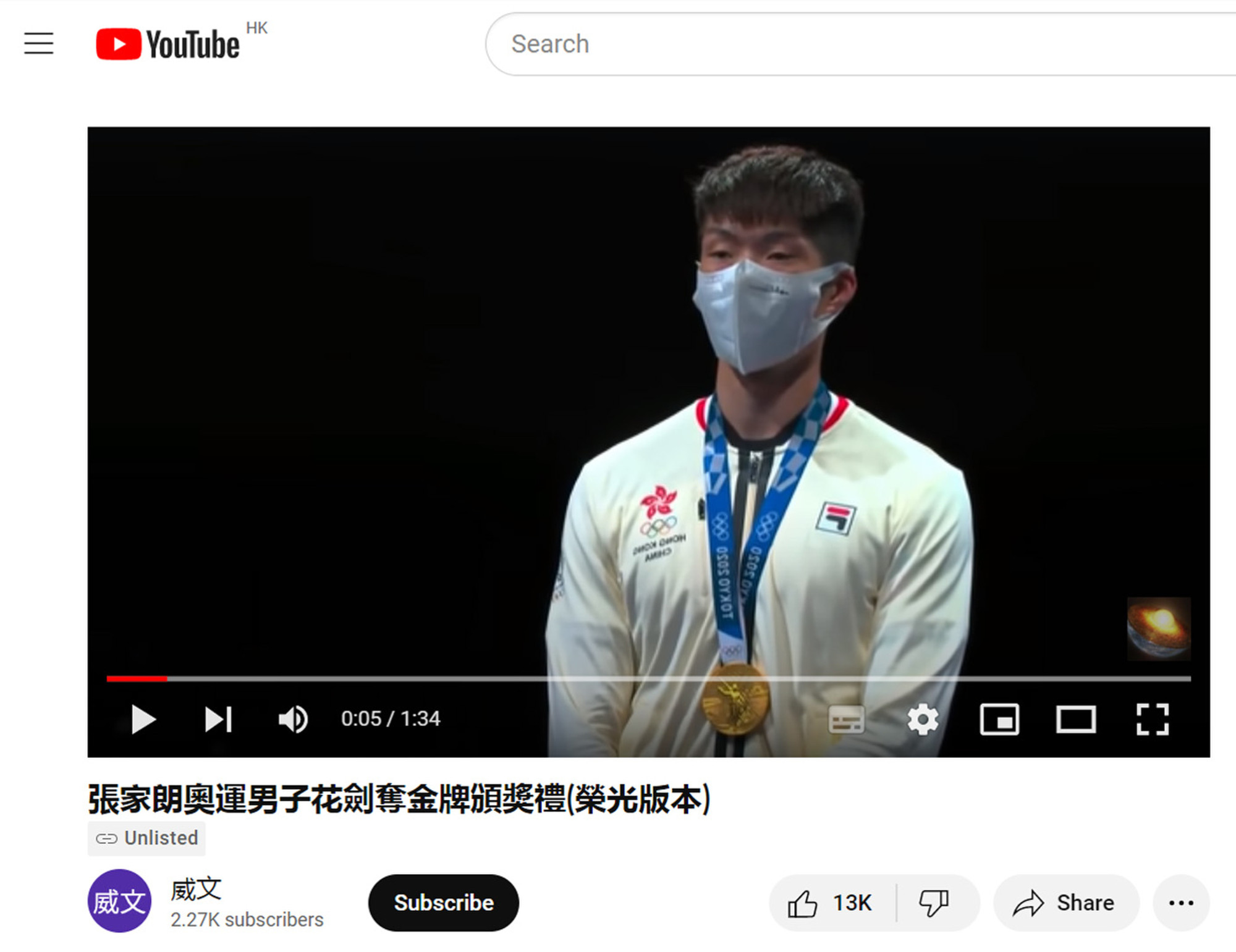
Hong Kong court convicts first person tried under national anthem law for adding protest song to Olympic athlete clip
- Cheng Wing-chun found guilty of disrespecting Chinese national anthem by substituting correct music in clip of Tokyo Olympics fencer winning gold in July 2021
- Conviction marks first criminal court ruling on legality of unofficial protest anthem ‘Glory to Hong Kong’, which could be banned soon by way of civil injunction
The first person to stand trial under Hong Kong’s national anthem law has been convicted for using a soundtrack of protest music in a video that showed a local athlete celebrating his victory at the Tokyo Olympics.
Hong Kong protest song back on platforms, as creator vows to defend freedoms
Magistrate Minnie Wat Lai-man revoked Cheng’s bail ahead of sentencing in two weeks in light of the seriousness of the offence. She added the likelihood of a term of immediate imprisonment was “very high”.
The song, written during the 2019 protests against a now-withdrawn extradition bill, appealed to people to fight for freedom and “Liberate Hong Kong” in a “revolution of our times”.

The prosecution contended in the latest trial that applying “Glory to Hong Kong” to the medal presentation ceremony, even its instrumental version, violated the law due to the public’s perception of the protest song and the circumstances of its creation.
Cheng has denied insulting the national anthem and an alternative charge of desecration of the Hong Kong flag in connection with the 94-second YouTube clip.
The accused told police that he was merely practising video editing with the remix footage and had picked the melody because it was “inspiring”.
He maintained he was unaware the music had an anti-government undertone.
But Wat found his exculpatory statement to have contradicted the YouTube post he published, which was labelled the “glory version” of Cheung’s ceremony.
Hong Kong seeks to extend law to ban online desecration of city’s flag
She highlighted the protest song’s popularity on social media and found Cheng must have intentionally altered the part where “March of the Volunteers” was played.
The act insulted the national anthem because only the song representing the country could be played during the official event, Wat continued.
“The defendant replaced the national anthem played during the solemn ceremony with ‘Glory’ and edited the footage in a way that made it seem people applauded after it was played,” the magistrate said.
“This behaviour clearly undermines the dignity of the national anthem as a symbol and sign of the People’s Republic of China.”
Hong Kong Journalists Association may seek ban exemption for protest song
Wat also ruled Cheng had publicly insulted the national anthem, an element of the offence that the prosecution must prove to secure a conviction.
While the video was hidden from public search, it remained accessible to those with a direct hyperlink, the magistrate said.
Defence counsel Keith Fung Chun-wah urged the court to consider alternative punishments, including a suspended sentence. He argued the case was not the worst of its kind because his client did not use insulting remarks in his YouTube post.
The barrister added that by the time of the video’s publication, the 2019 protests had died down with the Beijing-decreed national security law in place.
‘Glory to Hong Kong’ protest song to be banned? Government files court injunction
“Those who disrespect the national anthem would not hold the song in further contempt after watching the video,” Fung said. “They would not respond in a way they would have in 2019.”
But Wat noted the defendant had failed to remove the clip from the platform despite the many warnings from viewers that it might have crossed the line.
She is expected to pass sentence on July 20, pending an assessment report on Cheng’s background.
Two others have previously been sentenced under the 2020 ordinance after pleading guilty to insulting the national anthem. The offence is punishable by up to three years’ imprisonment and a HK$50,000 (US$6,385) fine.
